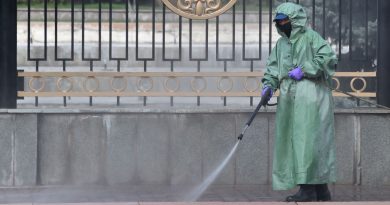Kazakhstan: anti-corruption examination of laws is costly and senseless
Anti-corruption examination of laws and regulations, which the Anti-Corruption Agency intends to introduce in Kazakhstan, will be a waste of budget money, since it will not affect the reduction of corruption. This conclusion suggests itself from a study conducted by the Public Fund “Transparency Kazakhstan”.
Fund experts studied the procedure for the adoption of 5000 regulatory legal acts (RLAs) in 2018.
“Our study shows that, under the current situation, anti-corruption expertise will not have an effect on reducing corruption. If we do not conceptually increase the transparency of the process of laws’ adoption and reduce their number, then this will be another business focused on stamping expertise under the auspices of “anti-corruption actions,” the Fund’s experts explain.
Recall, as ACCA already reported, one of the main problems of lawmaking in Kazakhstan is that the authorities only formally consider the proposals and comments of citizens on the legal acts laid out by state bodies for discussion.
In addition, the Fund’s experts also name other problems: instability of the legislation and lack of transparency in the system of adoption of legal acts at the stages of discussion and coordination with citizens, industry associations, state bodies and deputies.
“We examined the open data published on the government’s portal “Open RLAs” and the Reference Control Bank of the RLAs, which showed that in 2018, the Kazakh authorities adopted 44 880 legal acts, that is, 123 new RLAs were adopted daily,” says Olga Shiyan, Executive Director of Transparency Kazakhstan. “According to the law, all bills must undergo public discussion. However, a study of government sites and the portal “Open RLAs” showed that government bodies submitted for public discussion only 15 936 draft RLAs.
It should be noted that the practice of anti-corruption examination of laws and legal acts was introduced in Kazakhstan in October 2009, when the law “On amending the Law of the Republic of Kazakhstan “On regulatory legal acts” on the issues of scientific anti-corruption expertise” was adopted, which established the mandatory conduct of scientific anti-corruption expertise for draft laws and regulatory legal acts.
However, in September 2014, a new law came into force in the country “On amendments and additions to certain legislative acts of the Republic of Kazakhstan on the separation of powers between the governmental levels,” according to which the mandatory scientific anti-corruption examination of draft laws and by-laws normative legal acts was abolished.
In early October of this year, the chairman of the board of the Parliamentary Fund in Kazakhstan, Zauresh Battalova, announced that the Anti-Corruption Agency had initiated a revival of anti-corruption expertise to check draft legal acts for compliance with the law.
“Previously, this work was carried out through public procurement by departments such as the Institute of Legislation under the Ministry of Justice and others. Now the Anti-Corruption Agency proposes to transfer this work to independent experts, representatives of the civil sector, including employees of state bodies,” said Battalova.
Battalova explained that when drafting legislative acts, there is a lobbying for departmental interests, when the developing body initially lays down norms containing corruption risks in the draft text.
On October 28, it became known that the Anti-Corruption Agency requested from the budget for anti-corruption expertise of draft legal acts almost $32 million for the next three years: $10.3 million in 2020 and $10.8 million in 2021 and 2022 respectively.
According to the Agency’s estimates, these funds will allow “to identify and eliminate corruption prerequisites even at the stage of adoption of legal acts”. The Agency also noted that according to forecasts in 2020, the number of draft legal acts will be about 2000, in 2021 – 2500, in 2022 – 3000.
However, Transparency Kazakhstan believes, based on the results of the study, that it is not anti-corruption expertise that can reduce corruption in the law, but only a real increase in the legal competence of citizens and officials, the accountability and transparency of the stage of public discussion of draft laws, as well as a decrease in the speed of legislative activity in the country.




